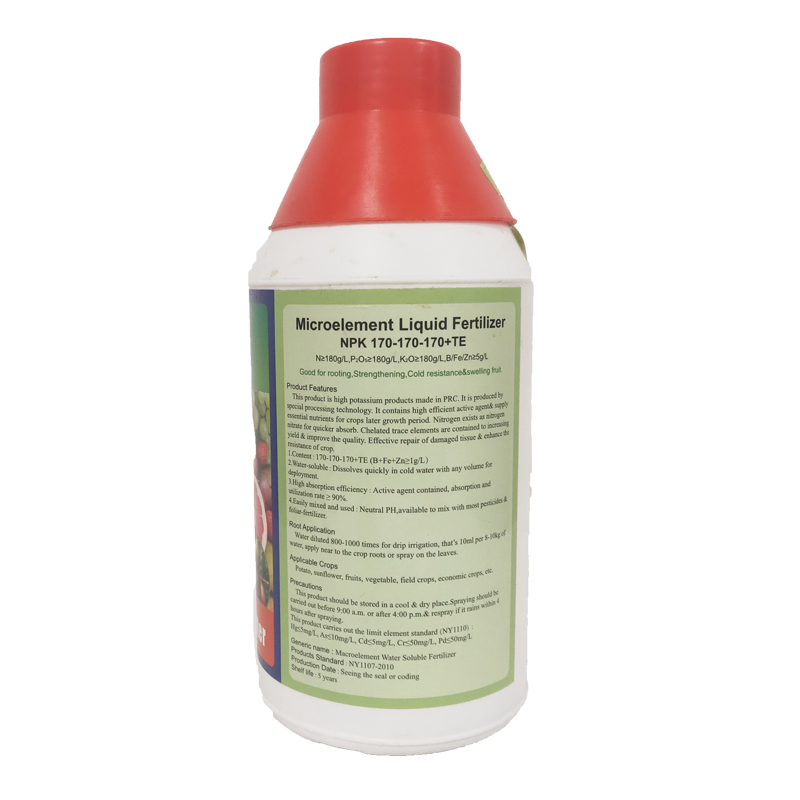
12월 . 05, 2024 18:22 Back to list
Organic Water-Soluble Nitrogen Fertilizers for Enhanced Plant Growth and Nutrient Uptake
Understanding Organic Water Soluble Nitrogen Fertilizers A Sustainable Approach to Agriculture
In the quest for sustainable agricultural practices, the utilization of organic water-soluble nitrogen fertilizers has emerged as an effective solution to enhance crop productivity while minimizing environmental impact. As global population growth continues to increase food demand, the need for innovative fertilization methods that promote both plant health and soil integrity becomes increasingly crucial.
What are Organic Water Soluble Nitrogen Fertilizers?
Organic water-soluble nitrogen fertilizers are derived from natural sources and are specifically designed to dissolve in water, allowing for easy application in various agricultural settings. Unlike conventional fertilizers, which may contain synthetic compounds that can lead to soil degradation and water contamination, organic options prioritize environmental sustainability and the health of both crops and ecosystems.
These fertilizers typically come from sources such as plant residues, compost, and animal manure, which are rich in nitrogen and other essential nutrients. By providing an instantly available source of nitrogen, they help to support plant growth, improve soil health, and encourage the beneficial microbial activity that is vital for robust ecosystems.
Benefits of Using Organic Water Soluble Nitrogen Fertilizers
1. Enhanced Nutrient Absorption These fertilizers are readily absorbed by plants due to their water-soluble nature. This ensures that nitrogen is delivered efficiently, maximizing the potential for healthy, vigorous growth.
2. Reduced Environmental Impact When applied correctly, organic nitrogen fertilizers can help mitigate issues associated with over-fertilization, such as nitrogen leaching into waterways, which can lead to harmful algal blooms and water pollution. Organic options decrease the likelihood of synthetic chemical runoff.
3. Improved Soil Health The organic matter found in these fertilizers enhances soil structure, promotes water retention, and stimulates the activity of beneficial soil organisms. This contributes to a balanced ecosystem that supports long-term agricultural productivity.
4. Sustainable Crop Production By using organic fertilizers, farmers can maintain sustainable practices that not only produce food but also protect the environment. These fertilizers support crop rotation and diversity, essential components of sustainable agriculture.
organic water soluble nitrogen fertilizer

5. Reduced Dependence on Chemical Inputs Transitioning to organic water-soluble nitrogen fertilizers allows farmers to decrease their reliance on synthetic chemical fertilizers. This shift not only benefits the environment but can also be more cost-effective in the long run.
Application Methods
Organic water-soluble nitrogen fertilizers can be applied through various methods, including
- Fertigation The incorporation of fertilizers into the irrigation system allows for precise application, reducing wastage and ensuring that nutrients reach the plants when they need them most.
- Foliar Feeding Spraying diluted solutions directly onto plant leaves can provide a quick nutrient boost, especially during critical growth stages.
- Soil Incorporation Mixing the fertilizers into the soil before planting ensures that they are readily available for emerging seedlings.
Challenges and Considerations
While organic water-soluble nitrogen fertilizers offer numerous benefits, there are also challenges to consider. The cost of production can be higher than that of synthetic fertilizers, which may deter some farmers. Additionally, the nutrient release rates can vary based on climatic conditions, soil types, and crop requirements, making it necessary for farmers to carefully manage their application strategies.
Conclusion
Organic water-soluble nitrogen fertilizers represent a promising innovation for modern agriculture. They provide essential nutrients while prioritizing environmental stewardship and soil health. As demand for sustainable practices grows, these fertilizers could become a cornerstone of future agricultural systems, helping to balance productivity with ecological integrity. Embracing organic solutions not only supports the immediate needs of crops but also contributes to a more resilient agricultural landscape for generations to come. By investing in knowledge, research, and practices that prioritize sustainability, we can work towards a future where agriculture nourishes both people and the planet.
-
10 10 10 Fertilizer Organic—Balanced NPK for All Plants
NewsJul.30,2025
-
Premium 10 10 10 Fertilizer Organic for Balanced Plant Growth
NewsJul.29,2025
-
Premium 10 10 10 Fertilizer Organic for Balanced Plant Growth
NewsJul.29,2025
-
Premium 10 10 10 Fertilizer Organic for Balanced Plant Growth
NewsJul.29,2025
-
50 Pound Bags of 13-13-13 Fertilizer for All Plants – Bulk & Organic Options
NewsJul.28,2025
-
High-Efficiency 15-30-15 Granular Fertilizer for Healthy Crops
NewsJul.28,2025
